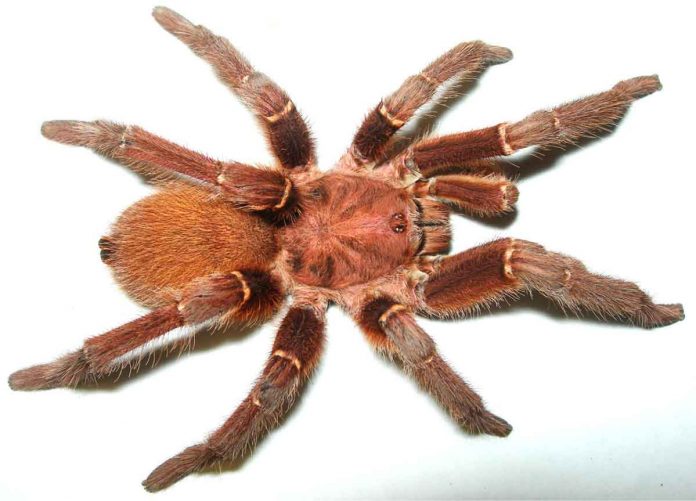Illawarra Health and Medical Research Institute, University of Queensland’s Institute for Molecular Bioscience and Victor Chang Cardiac Research Institute researchers have uncovered the reason for the intense pain associated with king baboon spider venom. The study has been published in Proceedings of the National Academy of Sciences. Scientists described a peptide in the venom produce hyperexcitability in nerve cells.
The bite of the king baboon spider is not lethal. It produces a lot of pain in hapless victims. The scientists conducted a proteotranscriptomic analysis of the venom. They wanted to identify possible peptides that they thought might be involved in producing pain. They identified one known as Pm1a. They then synthesized the peptide. This allowed the NMR spectroscopy to ascertain its structure.
Scientist studied the impact of the peptide on mice. They injected a small amount into a toe. They seen the peptide modulated ion channels and incited excitatory sodium currents. It also reduced potassium currents which are involved in inhibiting excitatory currents. There was hyperexcitability in nerve cells which meant pain. The scientists created a mathematical model of the peptide. They have witnessed its impact on nerve cells. It will further prove that it was the main driver of pain in victims of the spider’s bite.
Scientists also noted that the hyperexcitability they saw in the mouse nerve cells resembled the type of hyperexcitability seen in people. Scientists suggested better understanding of how spider venom can produce similar results. This can lead to a way to reduce pain in these patients.

